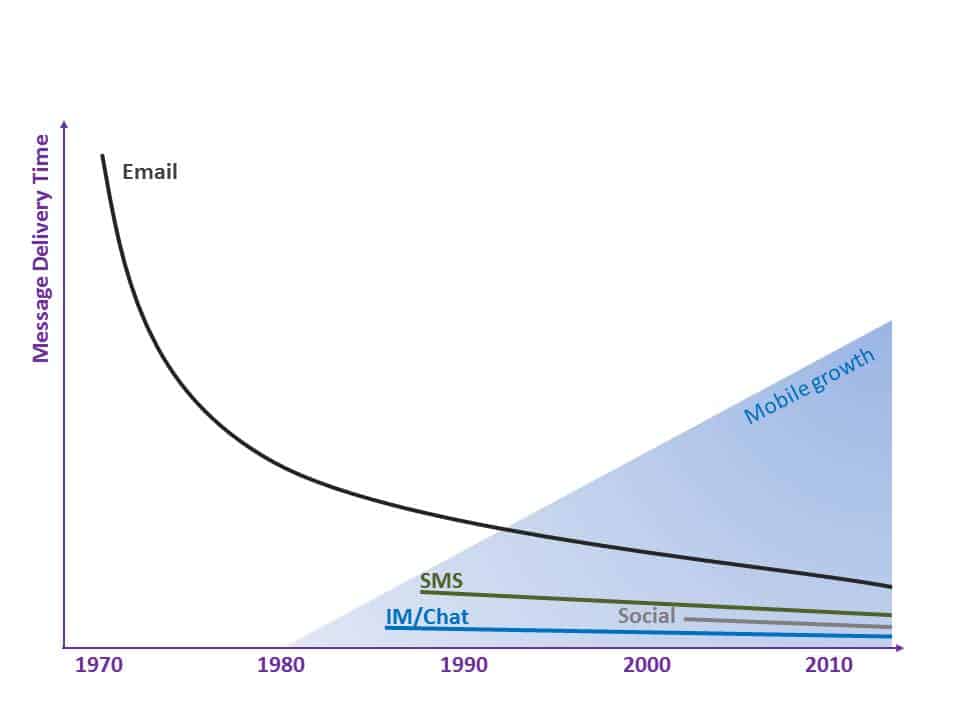McKinsey’s MECE
Forgive me if I’m stating something obvious. I’m just surprised how often I see people (in all kinds of situations) make recommendations without providing any rationale behind their recommendations. IMHO, this makes recommendations, and all the hard work and thought that went into them, virtually meaningless. Always frame the problem first and start with the primary objective.
Marquee consulting firm McKinsey has an approach to problem framing called “MECE“. This refers to “Mutually Exclusive and Collectively Exhaustive.” The value is more in the philosophy than a specific approach. Implementation can be done in many ways (outlines, graphics, […]
Collaboration Knowledge and Big Data
Gutenberg’s printing press initiated mass knowledge capture via books. The Internet is enabling another monumental knowledge boon, but this is not limited to just web pages. In fact, rapidly increasing pace, more multi-tasking, greater agility, and even shortening attention spans are moving us away from the era of large, heavy books or documents to an increasing amount of micro-content. Major decisions and valuable knowledge can be found in micro-content including email, microblogging, and SMS mobile texting. The question is: how much of it is useful knowledge and how much creates noise that just makes finding the useful stuff more challenging?
Convergence of Messaging Systems
Email Legacy
It is becoming increasingly more difficult to imagine life before the Internet, a time when networked Email was a breakthrough, providing electronic messaging to the growing masses of PC adopters. But Email, at least Networked Email (vs. its predecessor, Mainframe Email), required a store-and-forward architecture to enable wide-area transportation across disjoint computers, often over periodic slow phone line connections.
The connections are faster now, but the physical networks making up the Internet are still heterogeneous resources, so Internet Email uses effectively the same store-and-forward architecture (via […]
The Real Cost of Email
The biggest cost of Email is the cost of lost opportunity. Using email for much of our collaboration, idea sharing and decision making is costing organizations dearly in lost knowledge capture.
Imagine we had to buy everything directly from manufacturers – that we had no stores from which to buy items we wanted, not even online stores. How would that work? We would have to figure out if the product we wanted even existed and then who made it. We’d have to contact manufacturers asking if they made the product we wanted or if they could refer us to the right […]
Seven Reasons Why Email Sucks
Ok, maybe that’s a bit harsh…or is it? We can’t live without email, just like we couldn’t live without telephones even when all we had was rotary dials. Who wouldn’t say “rotary dial sucks!” today? We’re dependent on email and drowning in email at the same time.
Look, email, in some form, will not get replaced completely. Just like TV didn’t completely replace radio. But following are just some of the reasons why we are way overdue for a change.
1. Knowledge Silos

Email’s “Delete Dilemma”
Sure, we can blame email overload on spam, the exploding information age, or our increasing life complexity and responsibilities. But volume of emails received is only part of the problem, in fact, arguably, not the primary problem. Even a trickle of running water into a tub that does not drain will overflow. The unspoken culprit to our email overload, then, is our inability to delete emails.
We keep so many emails because these emails include both content (e.g., message, answers, files) and the notification of this content. Since we […]


